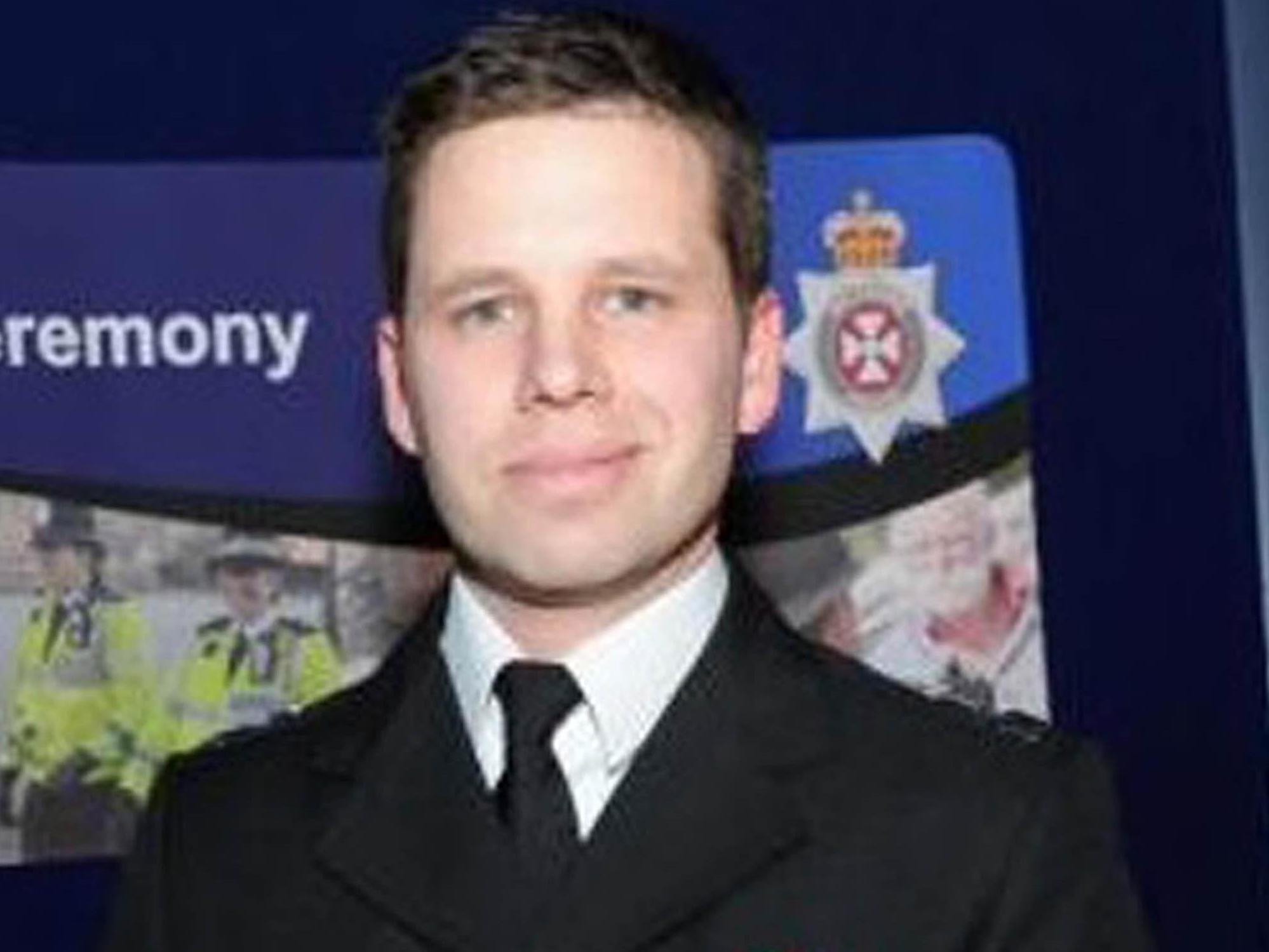Nick Bailey: Wiltshire Police officer 'very anxious' in hospital after being poisoned by nerve agent
Detective sergeant in serious condition after exposure to nerve agent used in suspected assassination attempt against Sergei Skripal

The police officer poisoned after coming to the aid of a Russian ex-spy targeted with a nerve agent is “very anxious” as he recovers in hospital, his Chief Constable said.
Detective Sergeant Nick Bailey remains in a serious condition after being exposed to the chemical weapon used in a suspected assassination attempt on Sergei Skripal, 66, and his 33-year-old daughter Yulia.
Wiltshire Police’s temporary Chief Constable Kier Pritchard said it was too early to tell if Mr Bailey, one of several of the force’s officers who fell ill, would make a full recovery.
He paid tribute to the “well-liked, well-loved” and ”massively dedicated officer”, who was formally commended in 2016 for work which led to a serial rapist being jailed.
Mr Bailey is among 21 people who received medical treatment following exposure to the nerve agent. Of those only the officer and the Skripals, who are both critically ill in intensive care, remain in hospital.
Mr Pritchard told Sky News: “I have just left the bedside of our officer and family in hospital, conveyed all our thoughts and wishes - an amazingly courageous officer.
“He’s well, he’s sat up. He is not the Nick that I know but of course he’s receiving a high level of treatment. He’s in the safe hands of the medical professionals working in Salisbury District so I’m very confident he’s getting the best professional support that he can.
“Of course he’s very anxious, he’s very concerned. He did his very best on that night.”
The Chief Constable’s praise was echoed by Prime Minister Theresa May, who said the events served as a “stark reminder” of the dangers faced by emergency staff.
It comes amid a flurry of activity in Salisbury, where police sealed off the gravestone of Mr Skripal’s wife Liudmila, who was buried in 2012, and the memorial stone of his son, Alexander, who was cremated last year.
They are located at separate sites in the London Road Cemetery, with each guarded by a police officer.
Hundreds of investigators, led by counter-terror police, are working to uncover who is behind what is thought to have been a sophisticated murder plot which has heightened tensions between Britain and Russia.
Earlier on Thursday, Home Secretary Amber Rudd said the use of a chemical weapon on UK soil was a “brazen and reckless act” and the Government stood ready to act as a clearer picture emerged.
Ms May, asked whether the action taken if Russia was found to be responsible could include the expulsion of its ambassador, told ITV News: “We will do what is appropriate, we will do what is right, if it is proved to be the case that this is state-sponsored.
“But let’s give the police the time and space to actually conduct their investigation.”
She added later: “I would like to pay tribute to all of the emergency services in Salisbury – those who reacted to the initial call on Sunday and those who continue to respond to this appalling and reckless attack.
“In particular, my thoughts are with Detective Sergeant Nick Bailey - one of the first responders – who remains in a serious condition in hospital.
“We are all thinking of him, his family, friends and colleagues – and the two other victims – at what is an incredibly difficult time.
“The events of Sunday are a stark reminder, if ever one was needed, of the dangerous situations our emergency services face and the dedication and courage they display every day in order to keep us safe.”
Addressing the House of Commons earlier, Ms Rudd said: “The use of a nerve agent on UK soil is a brazen and reckless act.
“This was attempted murder in the most cruel and public way. People are right to want to know who to hold to account.
“We are committed to doing all we can to bring the perpetrators to justice – whoever they are and wherever they may be.”
Sources involved in the investigation have told The Independent that the sophisticated and brutal method used to target Mr Skripal points towards “either present or past state-sponsored actors”.
Sir Edward Leigh, a Conservative former minister, suggested that if Russia was responsible it amounted to an “act of war”. Responding to his comments, Ms Rudd said: “There will come a time for attribution and there will be, then, consequences and there will be further information that follows.”
Ms Rudd, who named the victims publicly for the first time, said Mr Skripal and his daughter “remain unconscious and in a critical but stable condition”.
The Russian Embassy said Ms Rudd’s speech was a “responsible political approach” and also likened the case to the high-profile deaths of wealthy Russians Boris Berezovsky and Alexander Perepilichnyy.
The inquest into the death of Mr Perepilichnyy is looking at whether he died from natural causes or was poisoned before he collapsed while out jogging near his home in Weybridge, Surrey, in November 2012.
At the time, the 44-year-old father-of-two was allegedly helping specialist investment firm Hermitage Capital Management uncover a $230m (£150m) Russian money-laundering operation.
The circumstances of the death of Russian oligarch Mr Berezovsky, found dead with a ligature wound to his neck in March 2013, remained uncertain after a coroner recorded an open verdict in March 2014.
Although there were suggestions that the 67-year-old – who had survived at least two assassination attempts – was murdered, police did not find any evidence of foul play.
Russia has denied responsibility for the attack on Mr Skripal, which comes seven years after he was released from the country as part of a spy swap with the US.
He had been convicted in his home country in 2006 for passing state secrets to MI6.
